- Home
- Elizabeth George
What Came Before He Shot Her il-14 Page 16
What Came Before He Shot Her il-14 Read online
Page 16
But that was overheard. “I bet you got to go, yellow arse. Bes’ run while you c’n still find your way. You an’ the li’l tosser wiv you. An’ Jesus, wha’s he doin wiv dat life ring?”
Toby finally noticed the other boys, which is to say that the nastiness of the speaker’s tone, not to mention his proximity, managed to wrest his attention from the skate bowl. He looked to Joel for guidance as to whether he was meant to reply, while in the skate bowl, the pace suddenly slowed, as if with the expectation of more fascinating action.
“Oh I know why he got dat life ring, innit?” the same taunting voice said. “He goin’ for a swim. Greve, why’n’t you help him out wiv dat?”
Joel knew what that meant. Aside from the duck pond, there was only one source of water close at hand. He felt Toby’s fi ngers close over the frayed bottom of his blue jeans. He still hadn’t risen from his position on the edge of the bowl, but his face had altered. The joy of watching the boys in the bowl had become the fear of seeing the boys behind Joel. He didn’t know them, but he could hear the menace in their voices, even if he didn’t know why that menace was directed at himself.
“Who’s he, Joel?” Toby asked his brother.
It was time for Joel to find out. He turned. The boys formed a rough crescent. At its centre was the droopy-faced, mixed-race boy whom Hibah had claimed as her boyfriend. She’d called him Neal. If there had been a surname, Joel couldn’t remember what it was. What he did remember was his only run-in with Neal and the little joke he’d made at Neal’s expense, just the sort of remark a boy like Neal was unlikely to forget. In the presence of his crew, over whom Neal was doubtless always eager to maintain suzerainty, Joel knew that the other boy might well take the opportunity to demonstrate his power, if not over a helpless child like Toby, then over his brother, the defeat of whom would score him many points.
Joel spoke to the boy called Greve, who’d taken several steps forward to put hands on Toby. “Leave him be,” he said. “He ain’t hurtin you. Come on, Tobe. We got to get home.”
“Dey got to get home,” Neal said. “Dat’s where dey swimmin. You got a nice pool in your garden, Tobe. An’ what th’ hell kind of name is dat, anyways?”
“Toby,” Toby muttered, although his head was lowered.
“Toe-bee. Dat’s sweet, innit. Well, Toe-bee, lemme jus step out of y’r way so you c’n run ’long home.”
Toby started to rise, but Joel knew the game. One step in their direction and Neal and his crew would be all over both of them, just for the fun of it. Joel reckoned he could survive an encounter with these boys because there were enough people in Meanwhile Gardens at this time of day that either someone would come to his rescue or would pull out a mobile and phone 999. But he didn’t want to let Toby fall into the clutches of this group of boys. To them, Toby was like a threelegged dog, something to humiliate, to taunt, and to hurt. He said to Neal in perfect friendliness, “Why, you c’n stay jus’ there, mon. Where we going ain’t in dat direction anyways, so you no trouble to us just like you are.”
One of the crew with Neal sniggered at this reply, so casually had Joel managed to speak it and so clearly had he communicated an utterly inappropriate lack of fear. Neal shot a look at the group of boys, seeking the source of this disrespect. When he didn’t find it, he turned back to Joel.
“Real yellow arse you are, Joe-ell. Get out ’f dis place. An’ don’t let me see you—”
“No more yellower’n you,” Joel pointed out, although the truth was that only two ethnicities had gone into Neal’s making while Joel’s had involved at least four that anyone had been willing to identify for him.
“So I wouldn’t be talkin’ bout who got wha’ colour to his skin, bred.”
“Don’ bred me, Joe-ell, like summick you ain’t. I squish bugs your size f’r breakfast, innit.”
Titters came from the group of boys. Spurred by this, Neal took a step forward. He nodded at Greve, a motion that indicated the boy was to take Toby as he’d been instructed and he then directed his attention to the bag Joel was carrying.
“Give dat over,” he said as Greve approached and Toby shrank away from him. “Le’s just have a look wha’ you got.”
Joel was perfectly caught at this point, with only one way out, which had very little hope of success. He could see what was going to happen if he didn’t act, so he acted quickly. He jerked Toby fully to his feet, thrust the bag with the lava lamp into his arms, and said, “Run. Run!
Now, Tobe, run!”
For once, Toby didn’t question instruction. He slid into the skate bowl and took off across the bottom of it. Someone shouted, “Get ’im,” and the pack of boys made a move as one unit, but Joel flung himself into their way.
He said to Neal, “You fuckin horse turd. You stick it in a pig’s arse, innit. You play at bein’ a real hot speck when you half pig and dat’s why you stick it where you stick it.”
This was, as it was intended to be, a suicide speech. But it got Neal’s attention. It also got the attention of Neal’s crew because they always did whatever Neal did, having very little in the way of brainpower of their own. Neal’s face went the colour of brick, and the spots upon it went purple. His fists balled up. He lunged. His crew moved in for the kill, but he shouted, “I wan’ it!” and descended on Joel like a rabid dog. Joel took the force of Neal’s flying body in his midsection. Both of the boys crashed to the ground with their arms swinging. A delighted shout went up from Neal’s crew, and they pressed forward to watch. The boys in the skate bowl joined them, until what Joel saw beyond Neal’s looming rage-ensanguined face was a mass of legs and feet.
Joel wasn’t a fighter. His breath had always come short whenever he was ignited to action, and the only time he’d ever been in an actual dustup, he’d not been able to catch his breath and he’d ended up in Casualty with a plastic mask over his nose and mouth. So what he knew about fighting came from what he saw on television, which consisted of ineffectively swinging his fists and hoping they made contact with some part of Neal’s body. He did manage to land a blow on the other boy’s collarbone, but Neal countered with one that hit Joel squarely on the temple and made his brain start singing.
Joel shook his head to clear it. Neal shifted position and sprawled across Joel’s chest. He put the full force of his weight on Joel’s body, and he used his knees to pin Joel’s arms to the ground. He began punching in earnest. Joel squirmed in an attempt to get him off. He threw his body right and left, but he couldn’t loose the other boy from him.
“Half breed li’tle bastard,” Neal snarled through his crooked teeth and his drooping mouth. “Teach you to disrespeck . . .” He grabbed Joel’s neck and began to squeeze.
All around him, Joel heard grunting and breathing: not only his own and Neal’s but the other boys’ as well, although theirs was excited and hot with anticipation. Not a film this time. Not a television show. But the real thing. Neal was their man.
“Get ’im,” someone muttered fiercely.
Someone else said, “Yeah. Go f ’r it, mon.”
And then someone said, “Got to finish dis, bred. Take it, take it,” and Joel realised that something had been passed to Neal from one of the boys at the edge of the crowd.
He saw the silver streak of it against Neal’s palm: a pocketknife and nicely honed. No one was coming to his rescue, as Joel had hoped, and he knew he was finished. But the certainty of this knowledge swept power into him, born of the human instinct to live. Neal had leaned to take the knife from his cohort; this put him off balance and gave Joel a chance.
He flung his body in the direction of the lean, which threw Neal off him. Joel fell upon him, then, landing blows, pounding against bone and flesh with all the strength he had. He fought like a girl: grabbing Neal’s hair, scratching at his unfortunate face, doing anything he could to stay one step ahead of the other boy’s intention and two steps ahead of his rage. He was fighting not to punish Neal, not to prove something to him, not to establish himself
as bigger, better, or more adept. He was fighting simply to stay alive, because he understood with the perfect clarity that comes with terror that the other boy intended to kill him.
He no longer knew where the knife was. He was unable to tell if Neal had it or if it had been knocked from his hands. He did know that this was a fight to the death, though, and so did the other boys, for they had fallen into a tense silence although not one of them had backed away from the brawl.
It was because of this silence that Joel heard a voice, a man calling out, “What’s going on here?” And then, “Get back. Step out of my way. You heard me, Greve Johnson. And you, Dashell Patricks. What are you boys doing?” And immediately after that, “For the love of God!,” which heralded Joel’s being jerked off Neal, hauled to his feet, and thrust to one side.
Joel saw it was Ivan Weatherall, of all people, his mentor from Holland Park School. Ivan said, “Is that a knife over there? Are you out of your minds? Is that yours, Joel Campbell?” and without waiting for a reply, he shouted at the rest of them to clear off.
Despite the fact that Ivan was one and they were many, he exuded such confidence that the boys obeyed, surprised and unused to being troubled when they were in the midst of one of their pursuits. This included Neal, who was nursing a cut lip. As his mates began to pull him from the site, he shouted, “Don’ you fuck with me,” an imperative obviously intended for Joel. “I’ll have you, arse wipe. Yellow-arse roadkill. You and your bruddah. You eat your muddah’s pussy.”
At this, Joel made a move to go after Neal, but Ivan grabbed his arm. To Joel’s surprise, he said under his breath, “Fight me, boy. Fight to get away. Go on. Do it, for the love of God. I’ve got a grip . . . Good. Right-o . . . Kick me as well . . . Yes, yes. Spot on, that . . . Now I’ll get you in a lovely half nelson”—with a quick movement that imprisoned Joel under his arm—“and we’ll make our way to this bench. Keep fighting me, Joel . . . I’ll throw you down here . . . try not to hurt you . . . Ready? Here we go.”
Joel found himself on the bench as promised, and when he looked around, Neal and his crew had retreated to the spiral stairs, heading up to the Great Western Road. The skateboarders had also dispersed, and he was left with Ivan Weatherall. He couldn’t understand how the miracle had been effected.
“They think I’ve sorted you, which suffices for the moment,” Ivan said in explanation. “It appears I came along just in time. What on earth were you thinking, taking on Neal Wyatt?”
Joel said nothing in reply. He was breathing hard. He didn’t want to end up in Casualty again, so he thought it best not to waste effort on speech. Beyond that, he wanted to be away from Ivan. He needed to find Toby. He needed to get both of them safely home.
“It just happened, did it?” Ivan asked. “Well, that shouldn’t surprise me, and I suppose it doesn’t. Neal Wyatt has issues with most of the planet, I’m afraid, which is what comes from having a father in prison and a mother possessing a predilection for crack cocaine. There is, of course, a way out for what ails him, a cure if you will. But he won’t take it. More’s the pity because he’s actually quite talented at the piano.”
Joel started at this, surprised by this altered vision of Neal Wyatt. Ivan nodded in understanding. “Shame, isn’t it?” He looked over his shoulder to the bridge, across which the boys had shuffl ed on their way to whatever next piece of trouble they had in mind. “Well, then, have you caught your breath? Are you ready to go?”
“’M okay.”
“Really? You don’t quite seem it, but I shall take you at your word. I recall you live somewhere nearby but not in Trellick Tower. I shall walk you home.”
“I don’t need—”
“Nonsense. Don’t be foolish. We all need something, and the first step on the path to maturity—not to mention peace of mind—is admitting that. Come along.” He smiled, showing his terrible teeth. “I shall not require you to hold my hand.”
He fetched a parcel from beneath the bench on which they’d been sitting. He tucked it under his arm and affably explained that it contained parts for a clock that he was assembling. He nodded towards Elkstone Road, a short distance away, and led Joel in its direction while beyond and around them Meanwhile Gardens continued to get back to normal.
Ivan chatted amiably, confining his conversation to clocks. Their assembly, he informed Joel, was his hobby and his passion. Did Joel recall the conversation they’d had about creative outlets on the day they’d met? No? Yes? Had he thought about what he wished to do so that his soul could earn its expression?
“Remember,” Ivan said, “we are like machines in this, Joel. Every part of us needs to be oiled and cared for if we are to function to our utmost capacity. So where are you in the decision-making process?
What is it you intend to do with your life? Beyond brawling with the Neal Wyatts of our world.”
Joel wasn’t sure that Ivan was serious. Instead of replying, he scanned the area for Toby and said, “I got to fetch my bruvver. He ran when Neal came.”
Ivan hesitated. “Ah yes. Of course. Your little brother. That does at least explain . . . Well. Never mind. Where might he have gone? I shall help you find him and then act as your escort home.”
Joel didn’t want this, but short of being rude, he didn’t know how to tell Ivan he felt best left alone. So he followed the pavement along Elkstone Road, Ivan tagging along, and he checked to see if Toby had run to their aunt’s house. Failing to find him there, he set off between the buildings, towards the duck pond, and there he discovered Toby crouched in the duck blind with his hands over his head. He’d somehow punctured his life ring. It hung around his waist still, but it was now only partially inflated. He hadn’t lost the bag that Joel had thrust at him, though. It was at his side, and when Joel reached him through the reeds, he saw that the lava lamp had escaped damage. He was thankful for this. At least Toby’s birthday would not be ruined.
He said, “Hey, Tobe. ’S okay now. Le’s go home. This here’s Ivan. He wants to meet you.”
Toby looked up. He’d been crying, and his nose was dripping. He said to Joel, “I di’n’t wee in my pants. I have to go, but I di’n’t wee my pants, Joel.”
“Tha’s real good.” Joel lifted Toby to his feet. He said to Ivan, who remained above them on the path to the pond, “This’s Toby.”
“Delighted,” Ivan said. “And impressed with the wisdom of your apparel as well, Toby. Is that short for Tobias, by the way?”
Joel looked at his brother, dwelling on the word apparel. Then he realised Ivan was talking about the life ring in conjunction with the vicinity of water. The man thought they’d possessed forethought when it came to Toby’s safety.
“It’s jus’ Toby,” Joel informed Ivan. “I ’spect my mum and dad di’n’t know Toby was short for anything.”
They climbed the bank to join Ivan who, taking a long look at Toby, removed a white handkerchief from his pocket. Rather than see to Toby’s face on his own, though, he wordlessly handed the linen to Joel. Joel nodded a thank-you and wiped down his brother. Toby kept his gaze fixed on Ivan, as if he were seeing a creature from another solar system.
When Toby was cleaned up, Ivan smiled. He said, “Shall we, then?”
and indicated the direction of the terrace houses. He said, “As I’ve learned from school, you young gentlemen live with your aunt. Would today be an appropriate time to make her acquaintance?”
“She’s off at the charity shop,” Joel said. “Up the Harrow Road. Where she works.”
“The AIDS shop, is it?” Ivan asked. “Why, I’m quite familiar with that place. It’s noble work, she does. Ghastly disease.”
“M’uncle died of it,” Joel said. “Aunt Ken’s bruvver. My dad’s her older bruvver. Gavin. Her younger bruvver, he was Cary.”
“Quite a loss she’s experienced.”
“Her husband died, too. Her first, tha’ is. Her second husband’s . . .”
Joel realised he was saying too much. But he had felt compell
ed to share something, in gratitude for Ivan’s being there when he was needed and saying nothing about the oddity of Toby when they’d come upon him.
The fact that they’d reached his aunt’s house again allowed him to let the rest of what he’d almost told Ivan go unsaid, and Ivan didn’t comment upon this as Joel and Toby mounted the steps. Instead he said,
“Well, I should like to meet your aunt at a later date. Perhaps I’ll call in at the charity shop and introduce myself, with your permission of course.”
Joel thought fleetingly of Hibah’s words of warning about this man. But nothing untoward had happened between them on any of the occasions when they’d met for their mentoring sessions. Ivan felt safe to be around, and Joel wanted to trust that feeling.
He said, “You can if you want.”
“Excellent,” Ivan said and extended his hand. Joel shook it and then prodded Toby to do the same.
Ivan reached into his jacket pocket and brought out a card, which he handed to Joel. He said, “This is where you can find me outside school hours. There’s my address. My phone number as well. I don’t have a mobile—I cannot abide those wretched things—but if you phone my home and I’m not there, an answer machine will take your message.”
Joel turned the card over in his hands. He couldn’t imagine why he would ever use it. He didn’t say as much but Ivan seemed to know what he was thinking.
He said, “You might want to tell me your plans and dreams. When you’re ready, that is.” He stepped away from the building and tipped his finger at Joel and then at Toby. “Until later, then, gentlemen,” he said and went on his way.
Joel watched him for a moment before he turned to the door and opened it for Toby. Ivan Weatherall, he decided, was the oddest man he’d ever met. He knew things about everyone—personal and otherwise—and yet he still seemed to take people as they came. Joel never felt a misfi t in his presence because Ivan never acted as if there was anything unusual in his mongrel features. Indeed, Ivan acted as if the whole world were made of people who’d been taken from a shaken bag of races, ethnicities, beliefs, and religions. How peculiar he was in the world where Joel lived.

 Well-Schooled in Murder
Well-Schooled in Murder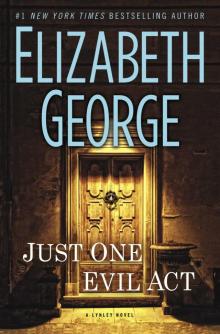 Just One Evil Act
Just One Evil Act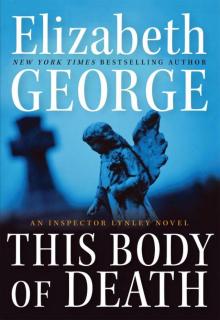 This Body of Death
This Body of Death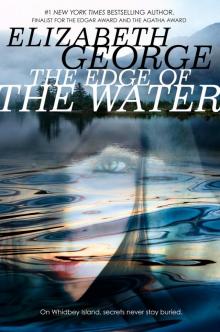 The Edge of the Water
The Edge of the Water For the Sake of Elena
For the Sake of Elena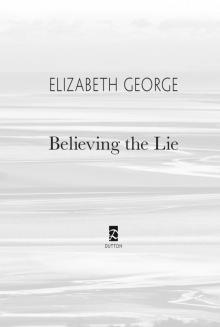 Believing the Lie
Believing the Lie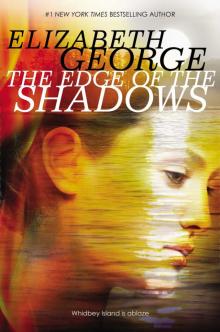 The Edge of the Shadows
The Edge of the Shadows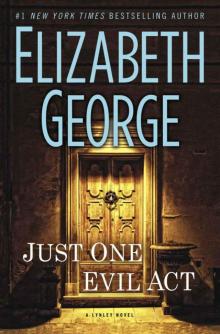 Just One Evil Act: A Lynley Novel
Just One Evil Act: A Lynley Novel In Pursuit of the Proper Sinner
In Pursuit of the Proper Sinner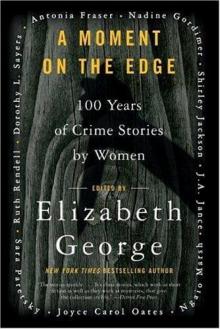 A Moment on the Edge:100 Years of Crime Stories by women
A Moment on the Edge:100 Years of Crime Stories by women Elizabeth I
Elizabeth I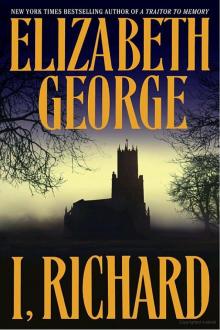 I, Richard
I, Richard A Traitor to Memory
A Traitor to Memory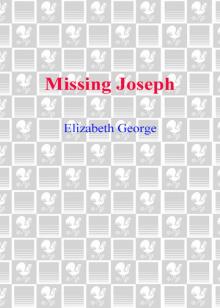 Missing Joseph
Missing Joseph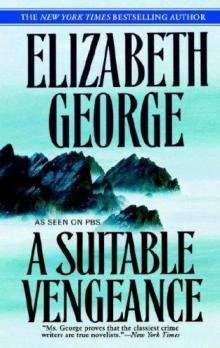 A Suitable Vengeance
A Suitable Vengeance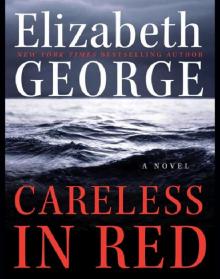 Careless in Red
Careless in Red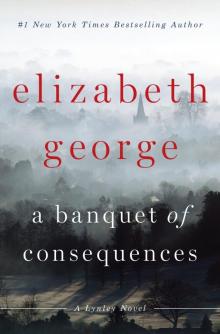 A Banquet of Consequences
A Banquet of Consequences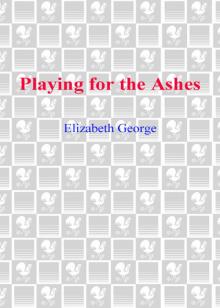 Playing for the Ashes
Playing for the Ashes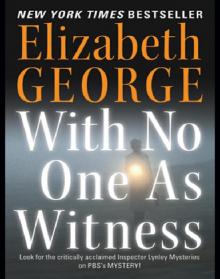 With No One As Witness
With No One As Witness Deception on His Mind
Deception on His Mind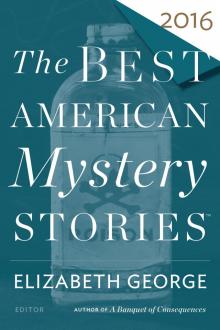 The Best American Mystery Stories 2016
The Best American Mystery Stories 2016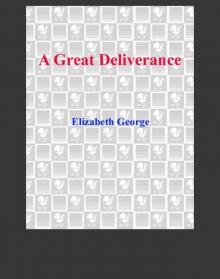 A Great Deliverance
A Great Deliverance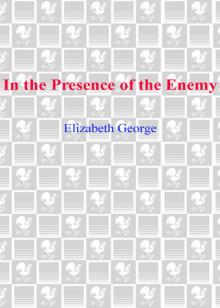 In the Presence of the Enemy
In the Presence of the Enemy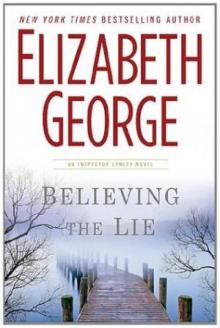 Believing the Lie il-17
Believing the Lie il-17 The Edge of the Light
The Edge of the Light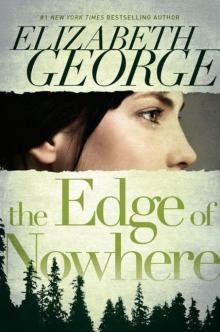 SW01 - The Edge of Nowhere
SW01 - The Edge of Nowhere A Place of Hiding
A Place of Hiding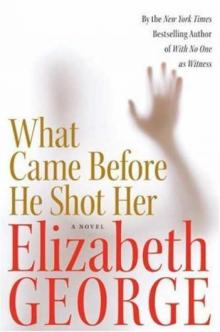 What Came Before He Shot Her il-14
What Came Before He Shot Her il-14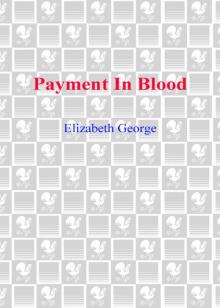 Payment In Blood
Payment In Blood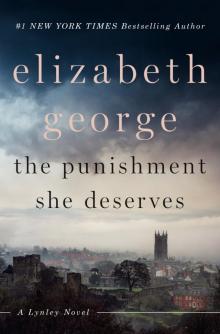 The Punishment She Deserves
The Punishment She Deserves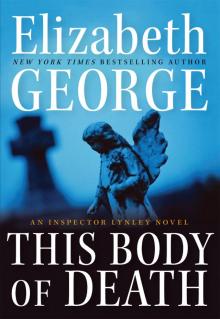 This Body of Death: An Inspector Lynley Novel
This Body of Death: An Inspector Lynley Novel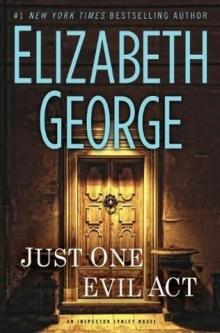 Just One Evil Act il-18
Just One Evil Act il-18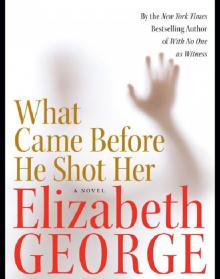 What Came Before He Shot Her
What Came Before He Shot Her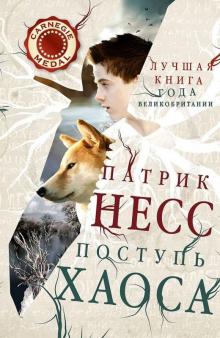 Missing Joseph il-6
Missing Joseph il-6